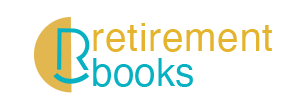Adapted from the book Project Renewment™: The First Retirement Model for Career Women by Bernice Bratter & Helen Dennis
“If I am not productive, I am irrelevant.”
Being productive is part of our core and for good reason. As career women, we have achieved success by working hard, producing products, strategies, reports, plans, curriculum, experiments, shows and articles. We have increased sales, won court cases, owned businesses, provided therapy and improved the bottom line. Promotions, bonuses and kudos have been bestowed upon us for a job well done. We have sustained a successful career.
Ever since Frederick Taylor introduced the term “productivity” at the turn of the last century, it has been used as a measurement of labor output, efficiency and as a major business determinant. We have responded to this meaning of productivity by fulfilling the demands and expectations of our employers. When these disappear, the transition from work to traditional retirement can become a problem. Here is the story of a former attorney in Project Renewment ™ who faced such a situation.
“On a beautiful sunny day, I headed for a local park to read a book written by one of my favorite authors. Reading for pleasure in the middle of a weekday was a new experience for me. Soon after settling in the right spot, I was joined in close proximity by a homeless man who lay back on the grass with his face to the sun. His posture gave every appearance of relaxation and pleasure—and the more comfortable he became the more my discomfort grew. I saw my future as a woman adrift with nothing better to do than sit in the park. I immediately left and made haste for home where no one could see me being lazy and unproductive.”
This drive to be productive is within us and can be difficult to reconcile when the environment does not demand or expect it. In retirement, there are no performance appraisals or external accountabilities, and no promotions, pay increases or perks. Self-imposed performance reviews based on the criteria from our career and work lives are ineffective. In all likelihood, the reviews may not live up to our expectations because the objectives are missing or have not yet been written.
Productivity has often been linked to generating money or producing a product or a service that others might recognize and value. We derive meaning from that recognition. Now, for the first time in decades, the measurement of meaningful output isn’t gauged according to a valued work product. For the first time we are challenged to “let go” of that well-accepted model. And for many, this has been a hard and challenging ordeal.
Old habits don’t die easily. One woman asked, “Why am I rushing from one thing to another? Suppose the task is not done by 11:00 a.m.? Even though I have all week, I still feel that I’ve just got to finish a task at a certain time and it’s must be accomplished perfectly. If I don’t, I feel that I have failed.” Eventually our groups realized that we needed a new and bold definition of productivity that had different criteria, one that reflected new priorities in this post-work phase.
We have identified a shift — from believing that external circumstances must somehow define how productive or useful we are — to defining that value for ourselves. We concluded that this Renewment™ period is a time of life to live according to our own values, ones that require us to ignore external pressures, become true to ourselves and adopt relevant meanings of productivity in this life stage.
